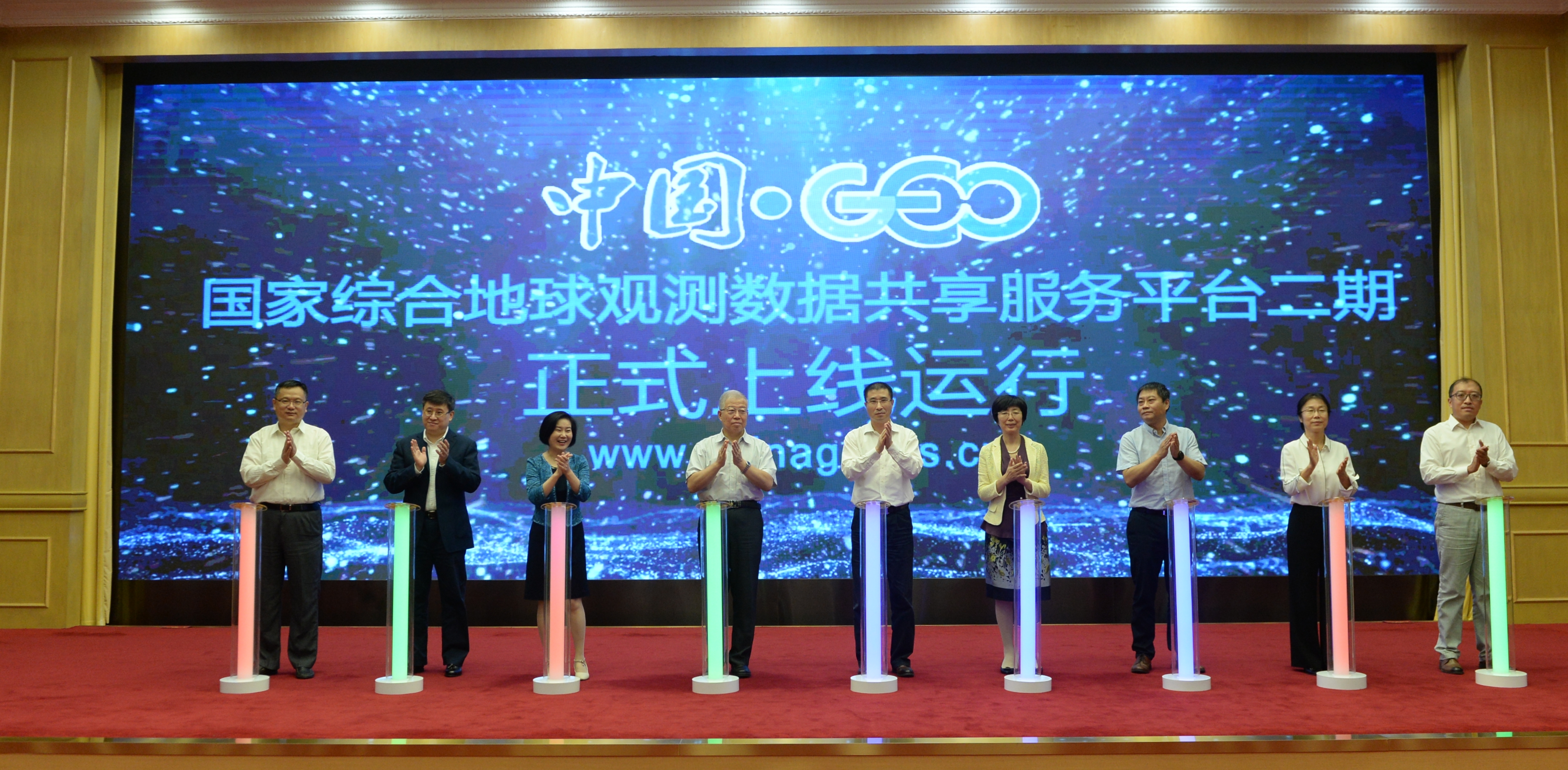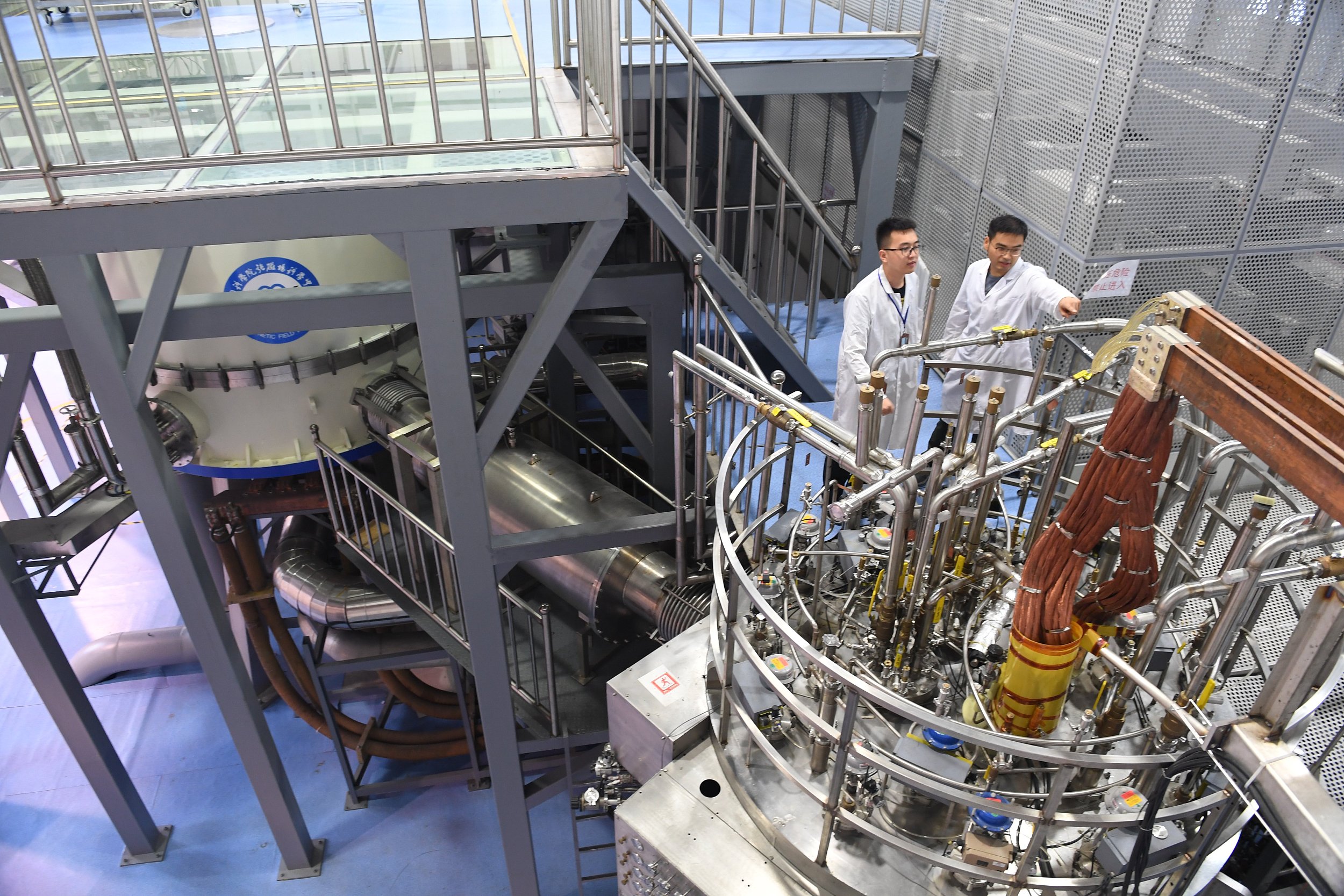China: A Key Contributor to GEO

A newly upgraded DSNet website is demonstrated. (Photo by Zhou Weihai from S&T Daily)
By GONG Qian
Participants, including well-known academicians, young scholars and government officials, held in-depth discussions about earth observation, remote sensing technology, satellite industry, ecological environment, and sustainable development at the First ChinaGEO Conference held in Beijing from September 8 to 9.
The Conference was hosted by China’s Ministry of Science and Technology, and organized by National Remote Sensing Center of China (NRSCC), which is the entity of GEO China Secretariat. Zhao Jing, Director General of NRSCC chaired the conference. A report on ChinaGEO’efforts and contribution to the world in recent years was delivered by Liu Zhichun, deputy director general of NRSCC.
The joint gathering aims to promote Earth observation community in China to further participate in activities by Group on Earth Observations (GEO).
"GEO serves as an important multilateral cooperation platform for China to build a community with a shared future for humankind. China will strengthen communication and exchanges with the rest of the world. Meanwhile, we hope to promote the development of ChinaGEO through coordination of the government, academia and the industry," said Zhang Guangjun, vice minister of science and technology and GEO China co-chair.
Dr. Stephen Volz, 2022 GEO Executive Committee lead co-chair, believed China has served as a leader in GEO Work Program and is a key contributor. "The Flagship activities of biodiversity, agricultural monitoring and Mercury observing systems all have Chinese leadership," said Volz, in a video speech during the conference.
Besides, other three GEO leaders also delivered speeches via pre-recorded videos. They are co-chairs Joanna Drake from European Commission, Mmboneni Muofhe from South Africa and Secretariat Director Yana Gevorgyan.
Founded in 2005, GEO is the largest intergovernmental multilateral cooperation organization in regard to earth observations, with 113 member countries so far. GEO's most important mission is to establish the Global Earth Observation System of Systems (GEOSS), that envisions a future where decisions and actions for the benefit of humankind are informed by coordinated, comprehensive and sustained Earth observations.
Over the past 10 years, China, as the co-chair of GEO, has worked with other member countries to develop GEOSS and offered services and assistance. In this way, China is actively fulfilling its commitment of building a community with a shared future for humankind.
In 2014, ChinaGEOSS Data Sharing Network (DSNet) was established to provide one-stop data access services for domestic and foreign users. “China has provided more than five million satellite data to GEO in over 10 years,” said Dr Li Guoqing, a researcher of Chinese Academy of Sciences. Li has been deeply involved in Chinese satellite data sharing since GEO was founded in 2005.
Among thousands of GEO data resource providers, the DSNet has become one of the most popular. At the two-day conference, a newly upgraded DSNet website was demonstrated. The major upgrading functions are involved in infrastructure, data governance, user interaction and statistical analysis.
Established in 2016, Collaborative network on Disaster Data Response (CDDR) is responsible for coordinating the provision of Chinese high-resolution satellite data and disaster analysis products to disaster-affected countries.
By August 2022, the CDDR mechanism had provided information services to cope with 34 major disaster emergency events such as earthquakes, volcanoes, floods, storm surges, wild fire and explosions in 25 countries, including New Zealand, Mexico, Iran, Iraq and Greece. The CDDR has been listed as one of the world's top nine disaster data contributors by GEO.
Additionally, ChinaGEO has offered technical training courses for developing countries on a regular basis, with more than 800 young scholars from over 40 countries taking part.
"In the future, ChinaGEO will further strengthen in-depth research to address common global challenges, carry out cooperation on food security early warning, ecological environment monitoring and climate change response. We hope to help building a Community with a Shared Future for Mankind through a joint effort," said Zhao Jing.


